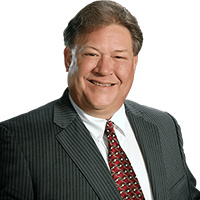Oil City Felony Lawyer, Louisiana
Sponsored Law Firm
-
 x
x

Click For More Info:
-
John D & Eric G Johnson Law Firm, LLC
415 Main St Minden, LA 71055» view mapCriminal Defense and Accident & Injury Fighting for You When You Need It the Most
At the John D. & Eric G. Johnson Law Firm, LLC, attorney Eric Johnson is renowned for his handling of cases throughout Minden and north Louisiana.
800-768-5820
Not enough matches for Oil City Felony lawyer.
Below are all Oil City Criminal lawyers.
Thomas A. Bordelon
✓ VERIFIEDTHOMAS A. BORDELON was born in San Antonio, Texas on December 6, 1959. Mr. Bordelon graduated cum laude from Louisiana State University at Shreveport... (more)
Mark Daniel Frederick
✓ VERIFIEDMark D. Frederick has over 20 years of legal experience, enabling him to handle the demands of your case regardless of the complexities involved. As y... (more)
J Ransdell Keene
✓ VERIFIEDPracticing law for more than 40 years, J. Ransdell Keene is a trusted legal ally for clients throughout the Shreveport area and across Louisiana. As a... (more)
H. Lyn Lawrence
FREE CONSULTATION
CONTACT Eric Johnson Minden, LA
Eric Johnson Minden, LA Practice AreasExpertise
Practice AreasExpertise



